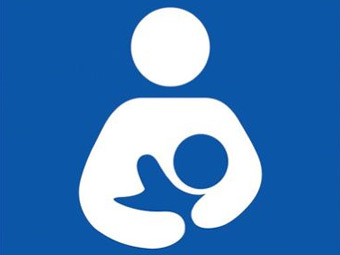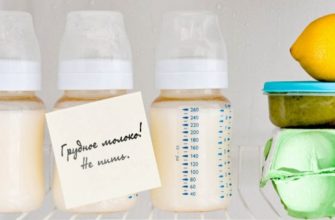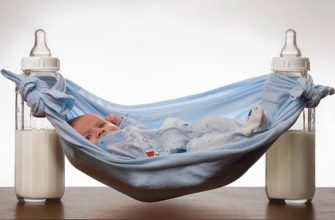 Breastfeeding is considered the most acceptable for babies. The milk produced by the glands contains a full range of vitamins and all vital nutrients. Every woman should understand this and not deny the baby breastfeeding.
Breastfeeding is considered the most acceptable for babies. The milk produced by the glands contains a full range of vitamins and all vital nutrients. Every woman should understand this and not deny the baby breastfeeding.
Breast milk is the best and basic food until the baby is given a variety of complementary foods as they grow older. The child’s body develops better with hepatitis B and also has good resistance to various infections and stresses.
WHO recommends
- It is necessary to put the child to the breast immediately after birth, if the mother is not forbidden due to illness to take the child.
- Exclude feeding the newborn with own milk from the bottle until the mother accustoms him to the breast. The baby will have a clear focus not on artificial feeding, but on breast milk.
- After childbirth, the baby and mother should be in the same room and constantly in contact.
- Correctly apply the baby to the chest, which avoids various inflammatory and tumor processes in the mammary glands. In order for the child's position to be correct, it is necessary to consult with a specialist (see our related article proper attachment).
- Feed the child at his first request and provide the opportunity to receive milk in the amount he requires. In this case, the child will be completely saturated. Also, constant attachment to the chest has a positive effect on lactation, and on the psyche and emotions of the baby (See how to feed - on demand or by the hour?).
- Make sure that the duration of feeding is under the control of the baby. It is not recommended to tear off the baby earlier than that time, until he releases the nipple.
- Do not replace night feeding with a bottle. During the application to the breast at night, the woman is provided with persistent lactation, as well as protection from unwanted pregnancy for up to six months. Breast milk at night is the most valuable and nutritious. (On the benefits of overnight breastfeeding).
- Exclude any additional liquid - water juices and compotes, if the child requires a drink. It is advisable to solder it only with breast milk (front milk allows the baby to get completely drunk).
- Do not accustom the newborn to nipple and bottle feeding. Feeding should be given from a special cup, teaspoon or pipette (how to teach a child a spoon).
- Transfer the baby to the other breast until it empties the first one. The last drops of milk are more nutritious, so if a young mother hurries to give a second breast, then the child will not receive these saturated nutrients. This leads to digestive problems and a malfunction in the intestines.
- Exclude frequent washing of the nipples, which leads to the loss of a specific layer that forms around the areola, and the appearance of cracks. Breast can be washed no more than once a day during mandatory hygiene procedures at bedtime.
- WHO recommends refusing to constantly weigh the newborn's body weight if they are prescribed more often than 1 time per week. Even if the child does not gain weight in full, this does not mean abnormalities, but only leads to an upset mother. As you know, any stress adversely affects lactation.
- Breast pumping only as a last resort. To prevent milk residues in the mammary glands, it is necessary to develop proper nutrition with complete emptying of the breast. Decantation is necessary only when the weaning mother from the child for an indefinite period or joining the job.
- Until 6 months, do not include complementary foods, as breast milk for a baby is a complete diet (About the first feeding).
- Communicate with women who have successfully breast-fed their children and have good experience in this. Practical advice and advice from maternal support groups are necessary for young mothers who do not have experience in feeding children (Recommended: advice to nursing women>>>).
- Provide the child with long-term feeding - up to 2 years, so that he suffers weaning with less psychological trauma.
[sc: rsa]
You should not easily refuse what WHO recommends, because the main activity of specialists in this field is to ensure the maximum comfortable development of the child and the psychological peace of the mother.









A very useful article for mommies especially. After the birth of the firstborn, I couldn’t give the baby the nipple correctly, he didn’t want to take it. And I had to feed him only one breast. As I later realized, there were some problems with the nipple.
The recommendations are good, but I do not agree that it is not necessary to give the child water and juices, they are necessary. You just don’t have to give them from the bottle, you can just give the baby a drink with a spoon. The same applies to complementary foods, it must be introduced into the diet earlier, but again do not use the bottle.
I have a difference between children of 15 years. She gave birth to her first child when pediatricians still did not inform mothers of recommendations on breastfeeding and the Internet was not in every home. After the birth of her second child, she herself studied the recommendations of the WHO, read and comprehended every point and tried to adhere to them. “Exclude expressing milk” the first month after birth did not work, because breasts were overflowing, stony, milk stagnated, which led to an increase in body temperature to 38. Therefore, after each feeding, it was decanted, up to a month of the baby. Nevertheless, I tried to control the duration of feeding, no more than 25 minutes, otherwise the baby literally slept at the chest and my day turned into one continuous feeding. There were certain crises when the baby did not seem to be full.On such days, fed every hour in the period from 3 nights to 8 in the morning, when there is a maximum allocation of prolactin, which contributes to an increase in lactation. She fed the baby up to 1 year and 10 months. Weaned in the fall, because in the winter and summer months, it is not recommended to stop feeding.
Nutrient was introduced in 7 months, water was not given before the start of feeding. Juice after a year and then rarely, better kompotik. I still feed 2.2 years